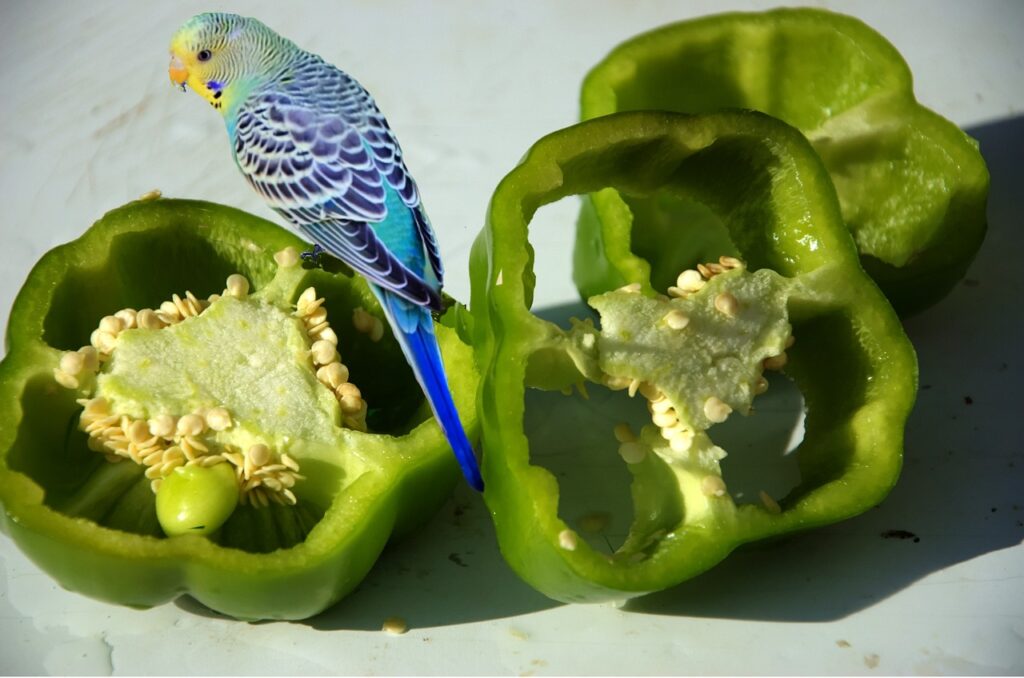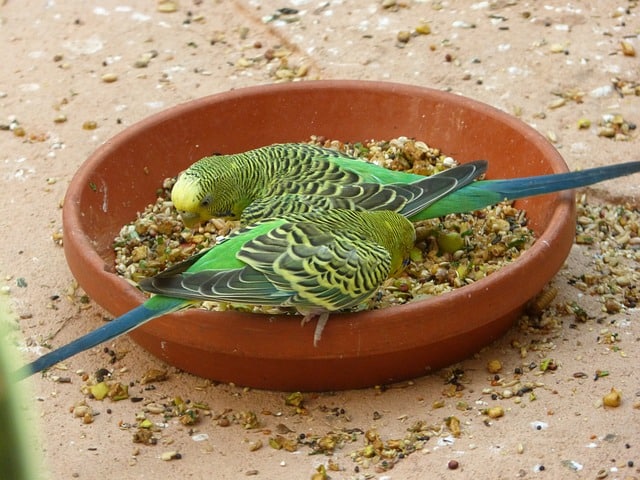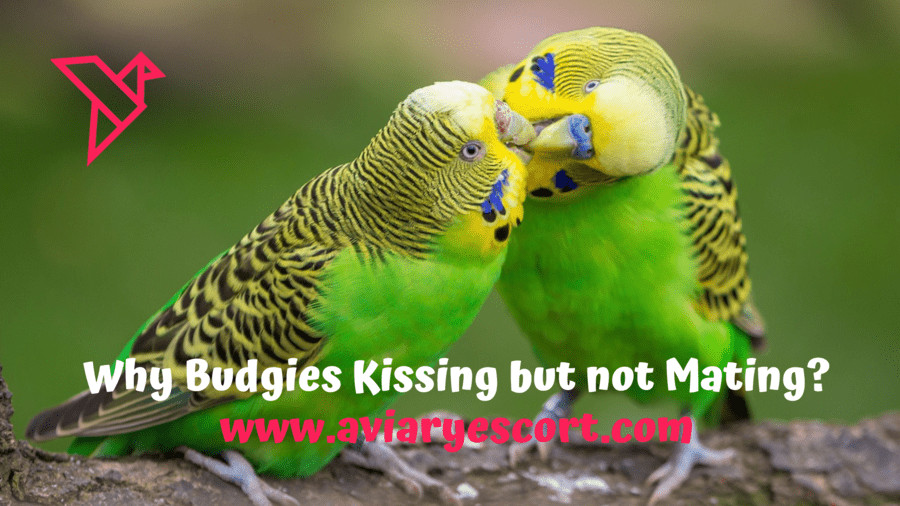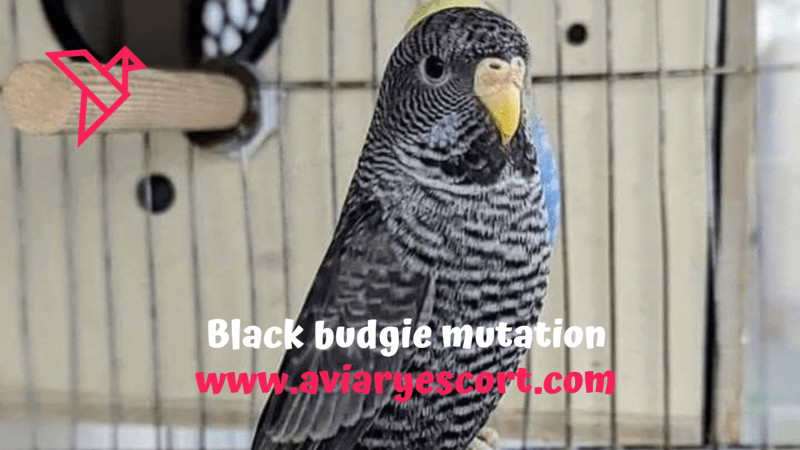Budgies, also known as parakeets, are delightful and colorful birds that have captured the hearts of bird enthusiasts around the world. One question that often arises in the minds of budgie owners is whether these charming creatures mate for life. In this comprehensive guide, we will explore the fascinating world of budgie relationships and uncover the truth about their mating behavior.
Understanding Budgie Social Structure
In the wild, budgies form strong social bonds and live in flocks. These flocks provide companionship, protection, and a sense of belonging. Within these flocks, budgies form pairs that are integral to their social structure.
Do Budgies Mate for Life?
Contrary to the popular belief that budgies mate for life, they are not monogamous creatures ( can change their partner). While they do form long-lasting pair bonds, these bonds are not necessarily permanent. Budgies have the capacity to find new mates, especially if their current partner is no longer present or if circumstances change.
Courtship and Pair Bonding
When budgies are ready to find a mate, they engage in courtship behaviors. These behaviors include singing, dancing, and displaying their vibrant feathers to attract a potential partner. Once a pair bond is established, the budgies will groom each other and often feed one another as a display of affection.
Read our guide on how to breed budgies fast at home here!
The Nesting Process
When budgies have formed a strong pair bond, they are likely to breed together. The nesting process is an essential part of their journey towards parenthood. In captivity, providing a suitable nesting box with appropriate materials can encourage the budgies to lay eggs.
Raising Offspring
Budgie pairs work together to care for their offspring. The female will incubate the eggs while the male brings her food. Once the chicks hatch, both parents take turns feeding and keeping them warm.

How To make the bonding process faster between budgies
1. Choose Compatible Budgies
When bonding budgies, it’s crucial to select two birds that are compatible with each other. Consider their age, temperament, and gender. Two males usually get along well, while a male and female pairing may lead to breeding behavior, even if you don’t intend to breed them. If you’re unsure about the genders, consult an avian veterinarian.
2. Acclimate Them Separately
Before introducing budgies to each other, allow each bird to become comfortable with their new surroundings individually. This will reduce stress when they finally meet and minimize territorial behaviors.
3. Use a Neutral Territory
When it’s time for the initial meeting, place both budgies in a neutral territory where neither bird feels ownership. This will prevent aggressive behavior and make it easier for them to establish a bond.
4. Observe Their Body Language
During the introduction, closely monitor their body language. Budgies show various signs of communication, such as chirping, head bobbing, and mirroring each other’s movements. Positive behaviors indicate that they are starting to bond.
5. Offer Treats Together
A great way to encourage bonding is to provide treats that both budgies can enjoy together. Sharing food promotes a sense of camaraderie and partnership.
6. Provide Interactive Toys
Stimulate their interaction by offering interactive toys, such as puzzle feeders or hanging swings. Playing together will strengthen their bond and keep them mentally active.
7. Avoid Interference
While they are getting to know each other, minimize interference from external factors. Loud noises or sudden movements might cause stress and hinder the bonding process.
8. Allow Gradual Integration
Bonding takes time, and it’s essential to be patient. Gradually increase the time they spend together until they become inseparable buddies.
Read more: Budgie Cage Setup Ideas: 30 Expert Tips
Factors Affecting Pair Bonding
While budgies are capable of forming strong pair bonds, several factors can influence the stability of these relationships. Let’s delve into these factors in detail:
1. Age:
The age of budgies can play a significant role in the strength and durability of their pair bonds. Younger budgies may not have fully developed social skills, making it harder for them to establish and maintain long-lasting relationships compared to older, more mature birds.
You can guess the age of your budgie by clicking here!
2. Social Interaction:
The social environment in which budgies are raised and live can greatly impact their ability to form pair bonds. Budgies that have plenty of opportunities for social interaction with other birds tend to develop more robust pair bonds.
3. Genetics and Hormones:
Genetic predisposition and hormonal influences also play a part in pair bonding. Hormones like oxytocin, commonly referred to as the “bonding hormone,” can strengthen the connection between budgie pairs.
4. Environment:
The living conditions and overall environment can have a profound effect on budgie pair bonding. An overcrowded or stressful environment may disrupt or weaken their bond.
5. Past Experiences:
Budgies, like humans, can be affected by past experiences. If a budgie has had negative interactions with previous mates, it may be hesitant to form new pair bonds.
6. Health:
A budgie’s health can impact its ability to form and maintain strong pair bonds. Illness or physical limitations may affect their behavior and ability to interact with potential partners.
7. Trust and Compatibility:
Trust and compatibility are vital in forming lasting relationships. Budgies that trust each other and have compatible personalities are more likely to establish and sustain a strong bond.
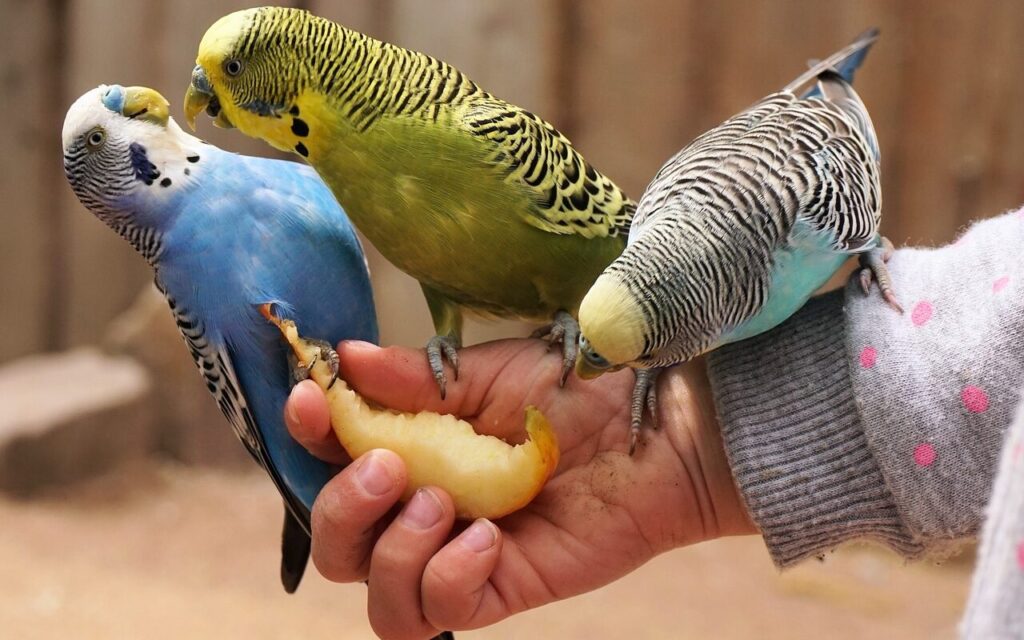
8. Social Hierarchy:
Budgies establish social hierarchies within their flock, and this hierarchy can also influence pair bonding. Some budgies may be more dominant or submissive, affecting how they interact with potential mates.
Conclusion
In conclusion, while budgies are social and affectionate creatures, they do not mate for life. Instead, they form long-lasting pair bonds that can be affected by various factors such as age, social interaction, genetics, environment, past experiences, health, trust, compatibility, and social hierarchy. Understanding these factors can help us provide the best care for these beautiful birds and ensure their well-being.
Read more: How to Breed Budgies Fast at Home
FAQs
Q: Can budgies form bonds with humans?
A: Yes, budgies are known for forming strong bonds with their human caregivers.
Q: How long do budgie pair bonds typically last?
A: The duration of budgie pair bonds can vary, but they can last for several years in captivity.
Q: Is it essential to provide a nesting box for breeding budgies?
A: While it is not mandatory, providing a nesting box can encourage breeding behavior in budgies.
Q: Can a budgie find a new mate if its partner passes away?
A: Yes, budgies have the ability to form new pair bonds after the loss of a mate.
Q: How can I tell if my budgies have bonded with each other?
A: Signs of bonding include mutual grooming, feeding each other, and staying close together.


